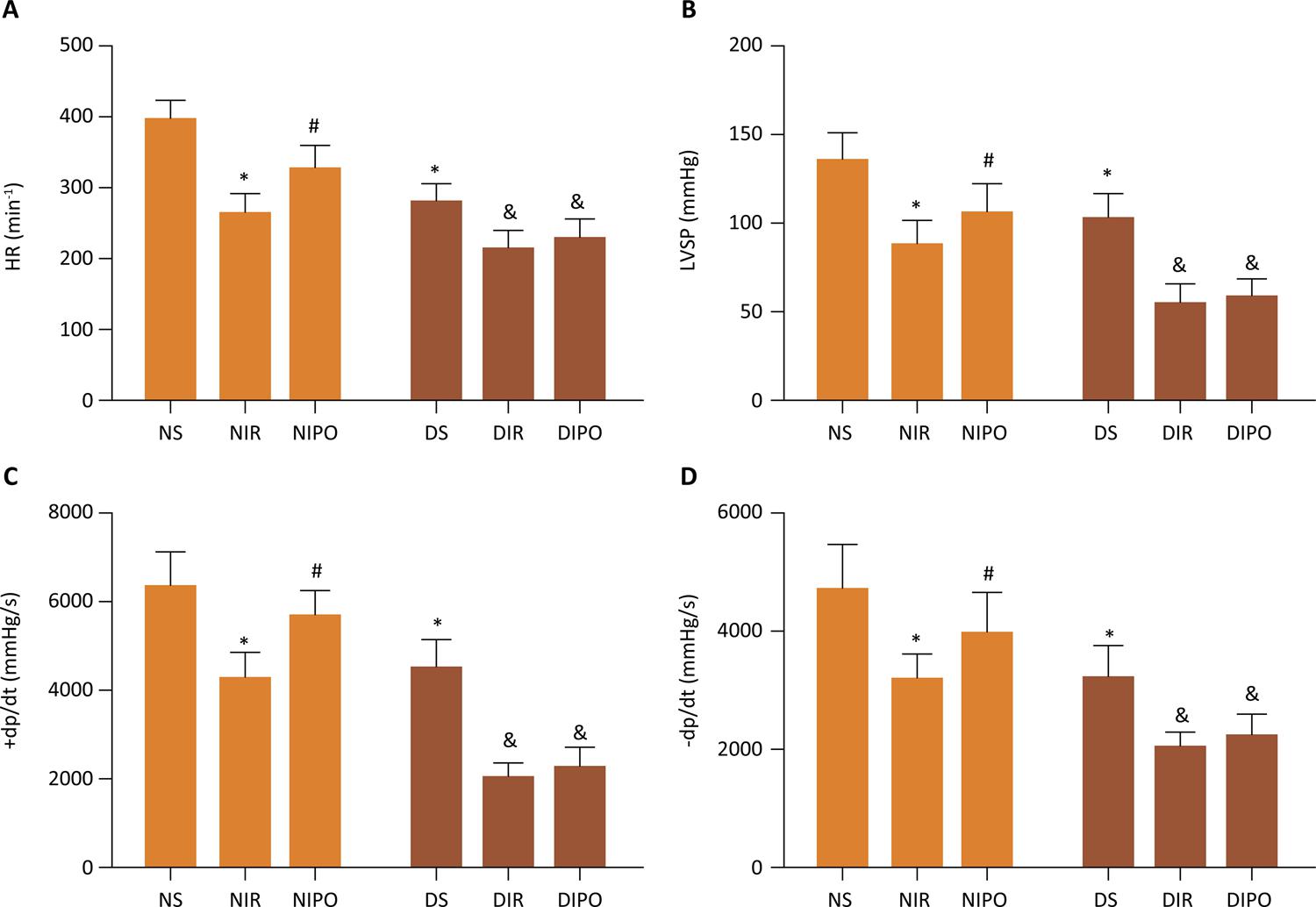Abstract
Purpose
Patients with diabetes are vulnerable to myocardial I/R (ischaemia/reperfusion) injury, but are not responsive to IPO (ischaemic post-conditioning). We hypothesized that decreased cardiac Adiponectin (APN) is responsible for the loss of diabetic heart sensitivity to IPO cardioprotecton.
Methods
Diabetic rats were subjected to I/R injury (30 min of LAD occlusion followed by 120 min of reperfusion). Myocardial infarct area was determined by TTC staining. Cardiac function was monitored by a microcatheter. ANP, 15-F2t-isoprostane, nitrotyrosine and MDA were measured by assay kits. Levels of p-Akt, total-Akt and GAPDH were determined by Western Blot.
Results
Diabetic rats subjected to myocardial IR exhibited severe myocardial infarction and oxidative stress injury, lower APN in the plasma and cardiac p-Akt expression ( P <0.05). IPO significantly attenuated myocardial injury and up-regulated plasma APN content and cardiac p-Akt expression in non-diabetic rats but not in diabetic rats. Linear correlation analysis showed that the expression of adiponectin was positively correlated with p-Akt and negatively correlated with myocardial infarction area ( P <0.01).
Conclusion
Protective effect of IPO was tightly correlated with the expression of adiponectin, exacerbation of I/R injury and ineffectiveness of IPO was partially due to the decline of adiponectin and inactivation of Akt in diabetes mellitus.
Adiponectin; Diabetes; Reperfusion Injury; Ischemic Postconditioning






